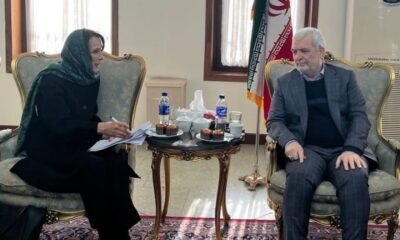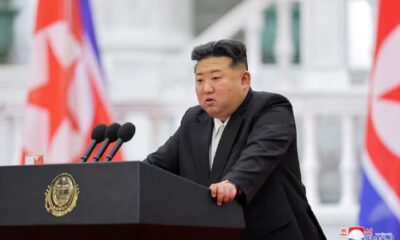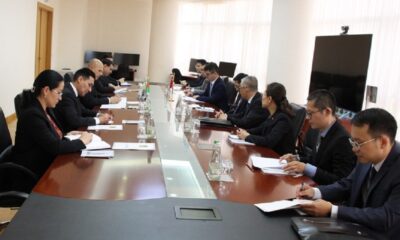Health
Health officials review plans to improve health care services in Afghanistan
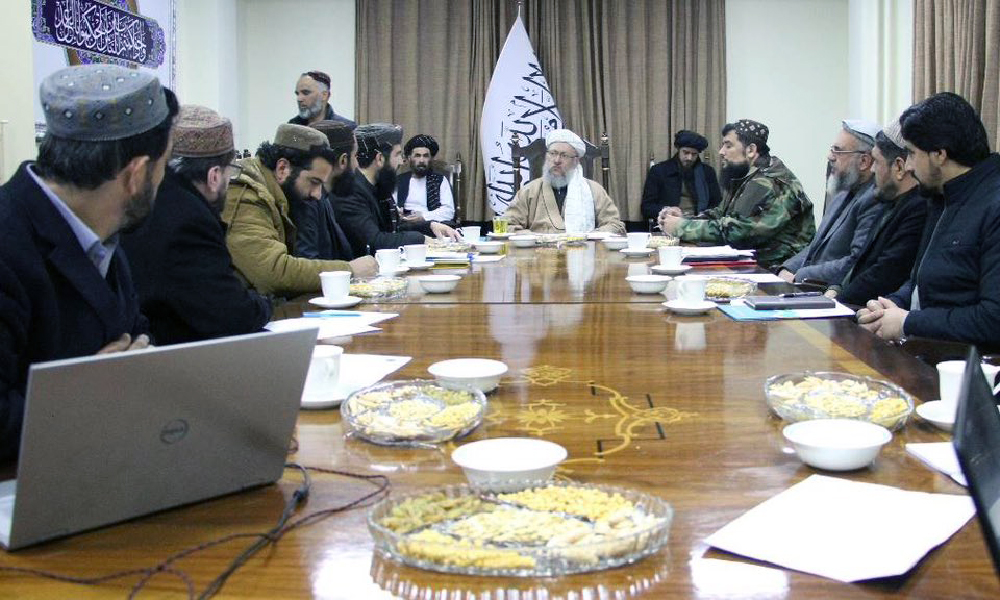
The need to reform government hospitals and health care services in the country was discussed this week at a meeting chaired by Mawalavi Abdul Salam Hanafi, Administrative Deputy of the Prime Minister of the Islamic Emirate of Afghanistan (IEA).
Dr. Qalandar Ebad, Acting Minister of Public Health, addressed participants at the meeting and said there was a need to reform hospitals and improve health services in Afghanistan and trained health care workers need to be employed across all areas of the country.
Participants also reviewed the health care reform plan, the former government’s plans and the plan around the new Ibn Sina pharmaceutical manufacturing company. This was in line with efforts to make the country self-sufficient, delegates said.
Recently, Hanafi made the necessary decisions regarding the recruitment of specialists in health centers and the creation of a responsible team for the activation of the Ibn Sina Pharmaceutical Manufacturing Company and the drew up a plan for the standardization of the Jamhuriat public hospital.
Health
Muttaqi appeals to WHO to help strengthen Afghanistan’s health sector
Hanan Balkhy, the World Health Organization’s director for the Eastern Mediterranean Regional Office, met in Kabul this week for talks with Amir Khan Muttaqi, the IEA’s foreign minister
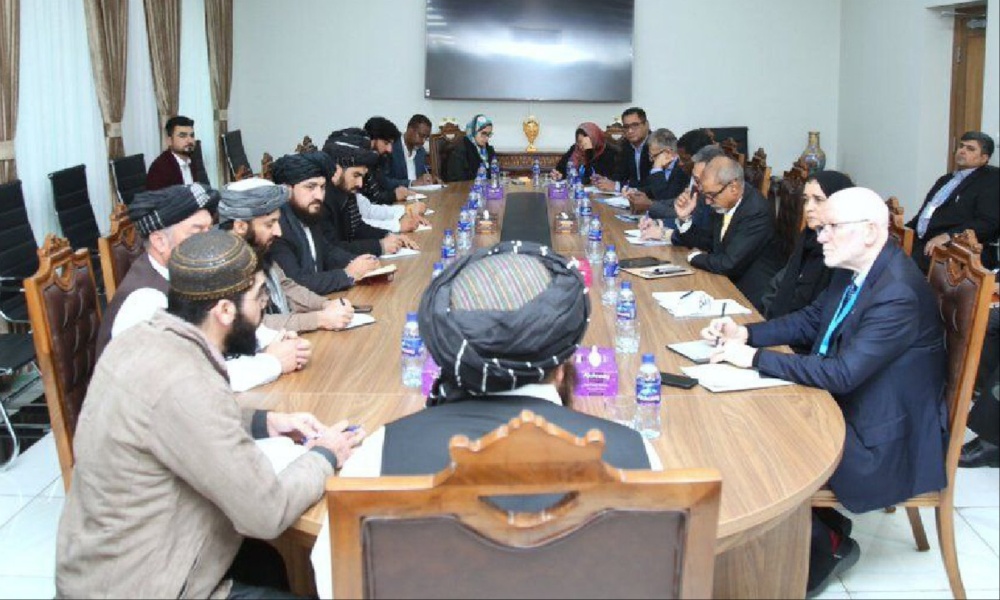
The Islamic Emirate has appealed to the World Health Organization to equip and strengthen Afghanistan’s health sector and to support Afghanistan’s pharmaceutical production sector.
Dr. Hanan Balkhy, the World Health Organization's director for the Eastern Mediterranean Regional Office, met in Kabul this week for talks with Amir Khan Muttaqi, the IEA’s foreign minister.
During the meeting, Muttaqi asked the World Health Organization to assist Afghanistan and to help it achieve self-sufficiency in the pharmaceutical production sector.
Balkhy meanwhile said that he was trying to garner support for Afghanistan from leading health experts around the world.
Christopher Elias, head of global development for the Bill Gates Foundation, also attended this meeting and said his organization was trying to take effective measures to eliminate the polio virus in Afghanistan.
Polio cases increase
Elias’ comment comes after the WHO stated that the forced repatriation of Afghan nationals from Pakistan was a “major setback” for polio eradication efforts and that it contributed to the regional resurgence of the disease.
Pakistan and Afghanistan are the only two polio-endemic nations in the world and so far this year, the two countries have reported 49 and 23 cases respectively; up from only six cases each in 2023.
The latest case in Pakistan was confirmed last week in the southwestern province of Balochistan, which sits on the Afghan border and accounts for half the cases reported in 2024.
The United Nations High Commissioner for Refugees has said that Pakistan's crackdown on undocumented foreign nationals has resulted in more than 730,000 Afghan migrants returning to Afghanistan since August 2023.
Health
UNICEF ensures 6.1 million people have access to basic health services in Afghanistan

More than six million people accessed essential health and nutrition services at UNICEF-supported health facilities last month, the UN agency said in its latest Humanitarian Situation Report for September 1 to 30.
UNICEF said of the 6.1 million people who accessed essential health and nutrition services, half of them were children under the age of five.
In addition, 50 schools in 10 provinces gained access to safe water, handwashing facilities, and newly constructed or rehabilitated toilet facilities.
However, as of September, UNICEF’s Humanitarian Action for Children (HAC) appeal for children in Afghanistan is only 41 percent funded.
Afghanistan remains one of the world’s largest humanitarian crises, with 23.7 million people in need of humanitarian assistance following decades of conflict, extreme climate shocks, and severe economic decline.
UNICEF also stated that this year, 33 percent of the population receives most of their income from unsustainable income sources, compared to 26 percent in 2023.
Health
Polio vaccination campaign kicks off in Afghanistan

Public Health Ministry officials have confirmed that a polio vaccine campaign across 16 provinces was launched on Monday.
Sharaft Zaman Amarkhil, the spokesperson of the Ministry of Public Health, says that the campaign got underway on Monday in a number of provinces including Kabul, Kandahar, Helmand, Uruzgan, Zabul, Farah, Nangarhar, Laghman, Kunar, Nuristan and some other provinces.
Amarkhil said the campaign will last for three days and an estimated 6.2 million children under the age of five will receive the anti-polio vaccine.
Zaman called on parents, religious scholars and ethnic elders to cooperate with the ministry's vaccinators in implementing the anti-polio vaccination campaign for children under five years old in the mentioned provinces.
The World Health Organization meanwhile published its latest Polio Bulletin on Monday and confirmed Afghanistan has recorded 23 cases of Wild Polio Virus so far this year.
Pakistan meanwhile reported two new cases this week - one in Khyber Pakhtunkhwa province and the other in Balochistan province.
Pakistan has recorded a total of 41 cases of polio so far this year, bringing the total between the two countries to 64, against last year’s total of 12 (Afghanistan 6 and Pakistan 6).
World Polio Day
Marking World Polio Day last week, UNICEF pointed out that the current data issues a stark warning that the life-threatening disease continues to thrive in areas where conflict, natural disasters, humanitarian crises, and other destabilizing factors make it difficult to deliver critical healthcare.
“In conflict, children face more than bombs and bullets; they are at risk of deadly diseases that should no longer exist,” said UNICEF Executive Director Catherine Russell.
“In many countries, we are witnessing the collapse of healthcare systems, destruction of water and sanitation infrastructure, and the displacement of families, triggering a resurgence of diseases like polio. Children are being left paralyzed, unable to walk, play, or attend school."
A global decline in childhood immunization has also led to an increase in polio outbreaks, including in countries that had been polio-free for decades.
Nowhere is this more evident than in conflict-affected areas, with 15 out of 21 such countries – including Afghanistan, Democratic Republic of Congo, Somalia, South Sudan, and Yemen – currently battling polio.
In recent months, UNICEF and partners have intensified emergency responses to surges in polio outbreaks.
In Gaza, for example, UNICEF, in partnership with WHO, reached nearly 600,000 children under 10 years during the first round of a polio vaccination campaign in mid-September. The second and final round has been successfully implemented in south and central Gaza, but renewed mass displacement and bombings have delayed the process in the north.
The campaign follows the return of polio to Gaza for the first time in 25 years.
-

 Sport5 days ago
Sport5 days agoAbu Dhabi’s thrilling T10 tournament just days away
-

 Sport5 days ago
Sport5 days agoAfghanistan beat UAE by 169 runs in U19 tri-series
-

 World5 days ago
World5 days agoBiden allows Ukraine to use US arms to strike inside Russia
-

 Latest News3 days ago
Latest News3 days agoTajikistan trumps Afghanistan 3-1 in football friendly
-
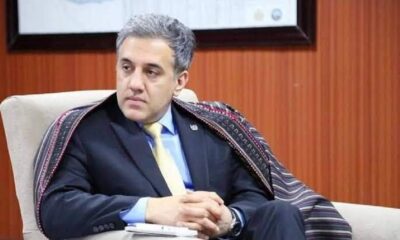
 Latest News4 days ago
Latest News4 days agoTwo Afghan diplomats posted to Germany under former government resign
-

 World4 days ago
World4 days agoLebanon, Hezbollah agree to US proposal for ceasefire with Israel, Lebanese official says
-
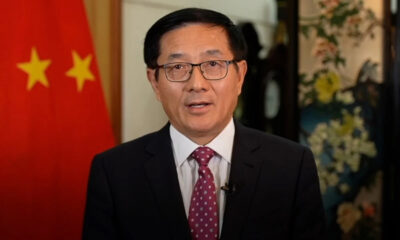
 Latest News5 days ago
Latest News5 days agoChina’s envoy says Beijing never interferes in Afghanistan’s internal affairs
-

 Latest News3 days ago
Latest News3 days agoEU marks International Children’s Day, says it supports Afghan children


